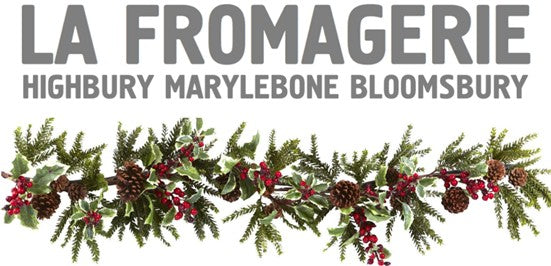'We thank you, Lord, for all this cheese...'
Saying grace may not be the typical start of a work day, but giving thanks does seem appropriate when about to tuck into a sampling of over 500 artisan cheeses, especially in a setting as inspiring as St. Mary’s in Melton Mowbray. We’re here for the Artisan Cheese Awards, where our Senior Cheesemonger Max is helping judge the New Cheese category. Max has worked in our Marylebone Cheeseroom for the past four years, but his background is actually in biomedical science, and he brings to his work and study of cheese that objective, methodical approach that is so important when tasting and comparing a large selection of quality products.
Today there are 522 cheeses from 117 of the finest cheesemakers working in Britain. Thankfully Max is only helping judge 30 in the New Cheese category, and then 16 (the top cheese from each category) to choose the Supreme Champion. Still, it’s quite a bit to take in.


After the opening blessing, the judges are given their instructions. They’ll be working in pairs, with two pairs per category. Each judge will individually score the cheeses, and then the team will use tally their scores to decide a winner for their category. Following that, one judge from each team will form another team to select the Supreme Champion.
The judges are also given their criteria for judging: Appearance and Presentation, Body and Texture, Flavour and Aroma, and Saleability (in this case, judged by how likely the judge would be to actually buy the cheese). Each cheese is scored, and if the judges feel it is worthy of an award, it can be given a Bronze, Silver or Gold.



For someone who spends at least 40 hours a week in a room with over 250 cheeses from around the world, this is still a unique opportunity. As Max is judging the New Cheese category, he is seeing and tasting cheeses he has never seen before (don’t worry, he is making note of his favourites so that we can look into stocking them in the future).
After about 4 hours of tasting, with a short break for some of Melton Mowbray's famous pork pies, the judges have decided a winner for each category, and one from each team convenes at the front of the room to choose the Supreme Champion.

Another round of tasting and judging later, and the Supreme Champion is declared: Edmund Tew, Backwoods Cheese Company’s first cheese in their 'Convict Series' (a series of cheeses they're producing and naming after British convicts who were transported to Australia in the 1800's for stealing cheese).
Blackwoods produces raw milk soft cow's cheeses, made by hand and using as little intervention as possible. Their milk comes from the Common Work Organic farm in Kent whose herd consists of Friesian x Holsteins with Swedish Red and Montebeliardes bred in. The Swedish Reds help to increase the butter fat concentration in the milk, while the milk from Montebeliards has a high level of protein and is famed for its cheese making qualities.
Edmund Tew is a lactic cow cheese with a brainy-looking rind, indicative of the presence of the yeast Geotrichum Candidum. The cheese is washed as it matures influencing both microbial diversity and flavour.
If you are interested in learning more about cheese, join us on Saturday, 26 May at our Bloomsbury shop for the second instalment of our Introduction to Cheese course. During the event, Max will guide you from Field to Dairy and from Dairy to Table as you examine the qualities of milk – from animal species and breed, to variations caused by differences in pasture, to how the milk is treated before it is processed into cheese.










